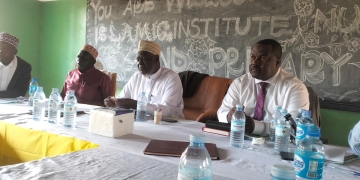
KAMPALA —In the heart of East Africa lies a kingdom that has stood the test of time, weathering centuries of change and challenge with a resilience that continues to inspire. The Buganda Kingdom, one of the most powerful and enduring monarchies in the region, remains a beacon of cultural heritage and political influence in modern-day Uganda.
A Storied Past
The origins of the Buganda Kingdom date back to the late 14th century, when it emerged as a small chiefdom on the northern shores of Lake Victoria. Over time, Buganda expanded its territory through strategic alliances and military conquests, becoming the dominant power in the region by the 18th century. The kingdom’s growth was marked by a sophisticated administrative structure, which included a centralized monarchy, a council of chiefs, and a well-organized system of local governance.
The Kabaka, or king, of Buganda held both political and spiritual authority, revered as a semi-divine figure by his subjects. The kingdom’s capital, Mengo, became a hub of economic and cultural activity, attracting traders and artisans from across East Africa. Buganda’s strategic location facilitated its involvement in regional trade networks, particularly in ivory and slaves, which further bolstered its wealth and influence.
Colonial Encounters
The arrival of European explorers and missionaries in the 19th century marked a turning point in Buganda’s history. The kingdom became a focal point for British colonial ambitions in East Africa, culminating in the signing of the Buganda Agreement of 1900. This agreement formalized British control over the region while granting Buganda a degree of autonomy under indirect rule.
Despite the challenges of colonialism, Buganda maintained a unique position within the British protectorate. The kingdom’s leadership adeptly navigated the complexities of colonial governance, leveraging their relationship with the British to secure advantages for their people. However, this period also saw tensions between the colonial administration and the Bugandan monarchy, particularly over land rights and political authority.
Post-Independence Turbulence
Uganda’s independence in 1962 brought new challenges for Buganda. The kingdom’s quest for greater autonomy led to clashes with the central government, culminating in the 1966 crisis when Prime Minister Milton Obote abolished the kingdoms and declared Uganda a republic. The Kabaka, Mutesa II, was exiled, and Buganda’s cultural institutions were suppressed.
The subsequent decades were marked by political instability and violence, as Uganda grappled with dictatorship, civil war, and economic hardship. Yet, the spirit of Buganda remained unbroken. The kingdom’s cultural identity continued to thrive underground, sustained by the unwavering loyalty of its people.
A Resilient Revival
The restoration of the Buganda Kingdom in 1993, under the leadership of Kabaka Ronald Muwenda Mutebi II, marked a new chapter in its history. The reinstatement of traditional monarchies by President Yoweri Museveni’s government was seen as a step towards national reconciliation and cultural revival. Kabaka Mutebi’s coronation was a moment of profound significance, symbolizing the resilience and continuity of Buganda’s heritage.
Today, the Buganda Kingdom plays a vital role in Uganda’s socio-political landscape. While it no longer holds formal political power, the monarchy remains a powerful symbol of cultural identity and unity for millions of Baganda people. The kingdom’s institutions, including the Buganda Land Board and the Buganda Development Corporation, actively contribute to economic development and social welfare in the region.
Kabaka Mutebi has also positioned Buganda as a custodian of environmental conservation and cultural preservation. Initiatives to protect the kingdom’s natural resources, such as the reforestation of the Mabira Forest, reflect a commitment to sustainable development. Furthermore, the promotion of Buganda’s rich cultural heritage, through festivals, music, and traditional crafts, ensures that the kingdom’s legacy is passed on to future generations.
The Buganda Kingdom stands as a testament to the enduring strength of cultural identity in the face of adversity. Its history, marked by both triumphs and tribulations, offers valuable lessons on resilience, adaptation, and the power of tradition in shaping the present and future.
The Kabaka’s vision of a prosperous and culturally vibrant Buganda continues to inspire hope and unity among his people, ensuring that the legacy of this ancient kingdom will endure for generations to come.










